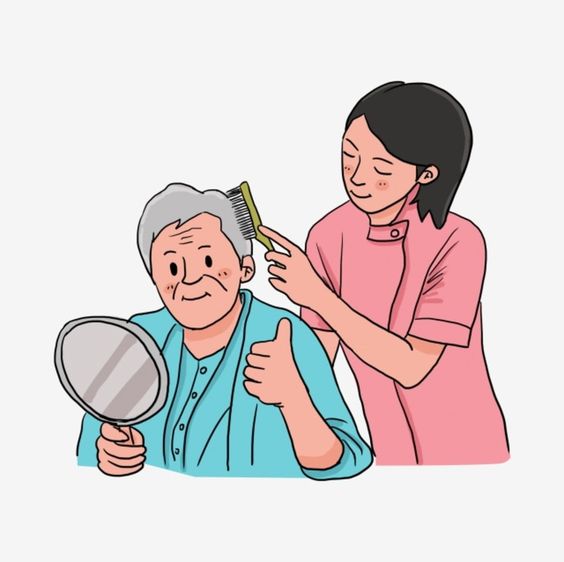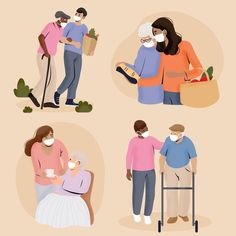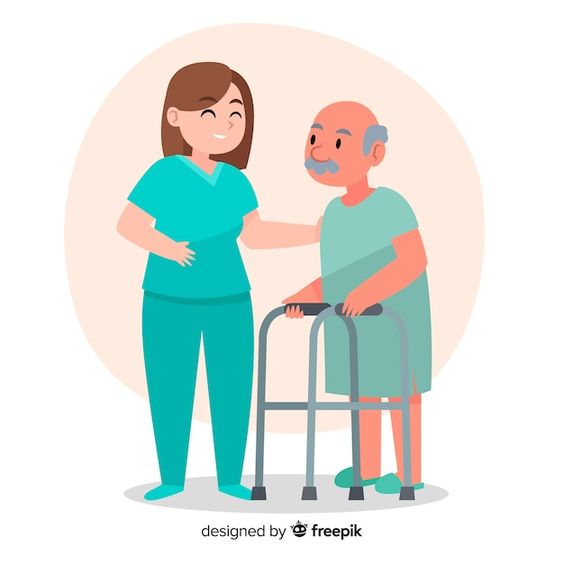
Table of Contents
The Silver Tsunami and the Rise of Geriatric Nursing
The healthcare landscape is significantly shifting due to a rapidly aging global population. This demographic phenomenon, often referred to as the “silver tsunami,” is driving the increasing need for specialized care tailored to the unique needs of older adults. Enter geriatric nursing, a specialized field within nursing that focuses on promoting the health, well-being, and independence of elderly patients.
Geriatric nursing possess a deep understanding of the physiological changes associated with aging. These changes can include:
Decreased mobility: Muscular decline, joint stiffness, and balance issues can significantly impact an elder’s ability to perform daily activities.
Cognitive decline: Memory lapses, decreased processing speed, and even dementia can become challenges for some elderly patients.
Increased susceptibility to chronic illnesses: Conditions like diabetes, heart disease, and arthritis become more prevalent with age, requiring careful management.
Beyond the physical changes, geriatric nurses also address the psychological and social challenges elderly patients face. Isolation, loneliness, and even depression can be significant concerns. Geriatric nursing plays a crucial role in the following:
Combating social isolation: Geriatric nurses help combat loneliness and isolation by fostering social interaction and connections.
Promoting mental well-being: Geriatric nurses are often on the front lines in identifying signs of depression or anxiety in elderly patients and providing support or referring them to appropriate resources.
The economic implications of the aging population are undeniable. With rising healthcare costs and increased demand for social services, geriatric nursing is vital in ensuring efficient and cost-effective care for our aging population. By focusing on preventative care, promoting healthy aging, and managing chronic conditions, geriatric nurses contribute significantly to a sustainable healthcare system for generations to come.
The Scope of Geriatric Nursing Practice

Geriatric nursing goes beyond simply treating illnesses. It emphasizes a comprehensive geriatric assessment (CGA), a cornerstone of this specialized field. CGAs involve a thorough evaluation of various aspects of an elder’s health, including:
Physical health: This includes assessing vital signs, mobility, nutritional status, and any chronic conditions.
Cognitive function: Geriatric nurses use standardized tests and observations to evaluate memory, problem-solving skills, and potential cognitive decline.
Functional abilities: Assessing daily living activities (ADLs) like bathing, dressing, and eating helps determine the level of independence an elder possesses.
Psychological well-being: Screening for depression, anxiety, and emotional health is crucial for providing holistic care.
Social factors: Geriatric nurses consider an elder’s living situation, social support network, and potential financial stressors to develop a well-rounded care plan.
This comprehensive approach allows geriatric nurses to create individualized care plans tailored to each patient’s needs and strengths.
Specialization Within Geriatric Nursing: Diverse Expertise
The field of geriatric nursing offers various subspecialties, each requiring specific skills and knowledge:
Geriatric Rehabilitation: These nurses specialize in helping elderly patients regain functional abilities after illness, injury, or surgery. They develop rehabilitation programs focusing on physical therapy, occupational therapy, and restoring independence.
Geropsychiatric Nursing: This specialty focuses on the mental health of elderly patients. Geropsychiatric nurses are trained to assess and manage conditions like depression, anxiety, dementia, and other mental health challenges specific to the aging population.
Long-Term Care Nursing: Geriatric nurses working in long-term care facilities provide daily care for residents with chronic illnesses or needing ongoing assistance. They manage medications, assist with daily activities, and provide emotional support for residents and their families.
Core Components of Geriatric Care: A Multifaceted Approach
Promoting Functionality and Independence: A core principle of geriatric nursing is helping elderly patients maintain their independence for as long as possible. This involves:
Promoting physical mobility: Geriatric nurses may employ exercise programs, assistive devices, and fall prevention strategies to enhance mobility and reduce the risk of falls.
Encouraging self-care skills: Nurses can assist patients in developing or maintaining self-care skills like bathing, dressing, and medication management, fostering a sense of autonomy.
Supporting participation in daily activities: Geriatric nurses encourage and support participation in hobbies, social activities, and meaningful occupations to enhance overall well-being.
Chronic Disease Management: Many elderly patients juggle multiple chronic conditions. Geriatric nurses play a vital role in:
Medication management: Ensuring proper medication adherence is crucial. Geriatric nurses educate patients on their medications, potential side effects, and strategies for managing complex medication regimens.
Patient education: Empowering patients through education about their conditions, treatment options, and healthy lifestyle choices is vital for self-management.
Collaboration with other healthcare professionals: Geriatric nurses work closely with physicians, pharmacists, and other healthcare providers to ensure continuity of care and optimal management of chronic conditions.
Pain Management: Pain management in geriatric patients presents unique challenges. Geriatric nurses:
Assess pain effectively: Communication difficulties and cognitive decline can make it harder for elderly patients to verbalize pain. Nurses use various assessment tools and observation skills to identify and address pain effectively.
Consider a multimodal approach: Geriatric nurses may employ a combination of medication, physical therapy, and non-pharmacological interventions like heat therapy or massage to manage pain effectively.
Address underlying causes: Whenever possible, treating the root cause of pain is crucial for long-term management.
Psychosocial Support: Addressing the Mind and Spirit
Geriatric nursing recognizes the importance of mental and emotional well-being.
Screen for depression and anxiety: These conditions are prevalent in elderly populations, and early identification allows for interventions and support.
Provide emotional support: Geriatric nurses create a safe space for patients to express their concerns and anxieties. They offer a listening ear and emotional support, fostering a sense of well-being.
Promote social interaction: Social isolation can exacerbate mental health problems. Geriatric nurses encourage social interaction through activities and programs that foster connection and belonging.
End-of-Life Care: Compassion and Dignity. Geriatric nurses play a crucial role in providing compassionate and dignified care for patients nearing the end of life.
Challenges and Rewards of a Career in Geriatric Nursing

Challenges: A Calling That Demands Resilience
While immensely rewarding, a geriatric nursing career presents its own challenges.
- Emotional Demands: Geriatric nurses work with patients facing illness, loss, and the realities of aging. Witnessing physical decline, cognitive impairment, and the emotional struggles of their patients can be emotionally demanding.
- Burnout and Compassion Fatigue: The demanding nature of geriatric nursing can lead to burnout and compassion fatigue. Long hours, emotional investment, and the potential for witnessing loss repeatedly can take a toll. However, senior nurses can combat this by:
- Prioritizing self-care: Engaging in healthy habits, seeking colleague support, and maintaining a healthy work-life balance is crucial for long-term well-being.
- Setting boundaries: Learning to detach emotionally from certain situations while maintaining compassion is a valuable skill.
- Ethical Dilemmas: Geriatric nurses may face complex moral situations, such as end-of-life decisions, patient advocacy, and balancing patient autonomy with family concerns. Critical thinking skills, strong communication, and an understanding of ethical frameworks are essential for navigating these challenges.
Rewards: A Fulfilling Path of Service
Despite the challenges, the rewards of geriatric nursing are profound.
- Making a Difference: Geriatric nurses significantly impact the lives of elderly patients and their families. They provide comfort, support, and skilled care, making a real difference in their patients’ quality of life.
- Building Meaningful Relationships: Geriatric nurses develop trusting relationships with their patients. Witnessing resilience, growth, and the beauty of aging fosters a sense of connection and purpose.
- A Fulfilling Career Path: Geriatric nursing offers diverse career opportunities. Nurses can work in clinical settings like hospitals or long-term care facilities, pursue research, or contribute to geriatric education.
Ultimately, a career in geriatric nursing offers a unique opportunity to serve a growing population, make a lasting difference, and build meaningful connections along the way. For those passionate about caring for others and a heart for older people, geriatric nursing provides a truly fulfilling path.
The Future of Geriatric Nursing: Innovation and Adaptation
The healthcare landscape for older adults is constantly evolving. Geriatric Nursing, at the forefront of this change, is embracing new technologies, preventative approaches, and advocacy efforts to ensure the well-being of a growing elderly population.
Technological Advancements: Empowering Independence
Advancements in technology are transforming geriatric care. Telehealth allows remote consultations and monitoring, reducing transportation barriers and increasing access to care for elderly patients living in remote areas. Remote monitoring devices, like wearable health trackers or medication dispensers with alerts, can empower independent living by enabling early detection of potential health issues.
Focus on Preventative Care: Investing in Well-being
Geriatric nursing is increasingly shifting towards preventative care. By promoting healthy aging practices like regular exercise, balanced nutrition, and preventive screenings, geriatric nurses can help elderly patients remain healthy and independent for longer. This focus on preventative care improves patients’ quality of life and reduces long-term healthcare costs.
Advocacy for Older Adults: A Voice for Change
Geriatric nurses are vital advocates for older adults. They play a crucial role in:
- Lobbying for policies: Geriatric nurses can advocate for policies that promote access to affordable care, safe living environments, and social support services for older people.
- Educating the public: Raising awareness about the unique needs of the aging population helps foster a more age-inclusive society.
- Influencing healthcare systems: Geriatric nurses can contribute to shaping healthcare systems that prioritize the well-being of older adults.
By actively advocating for change, geriatric nurses ensure that the needs of a growing elderly population are addressed and met.
Education and Training: A Commitment to Excellence
Staying current with best practices and advancements is crucial in geriatric nursing. Continuing education opportunities allow geriatric nurses to:
- Refine their skills: Geriatric nurses can pursue additional certifications in geriatric rehabilitation, geropsychiatric care, or other specialized areas.
- Stay informed of new technologies: Understanding and integrating new technologies into their practice enhances the care they provide.
- Adapt to the changing needs of older people: As healthcare needs evolve, geriatric nurses with ongoing education can adapt and provide the most effective care possible.
Investing in continuous learning ensures that geriatric nurses remain at the forefront of providing exceptional care for our aging population.
Geriatric Nursing: A Calling to Serve

The “silver tsunami” of an aging population underscores the growing importance of geriatric nursing. This specialized field offers a unique opportunity to address the complex needs of elderly patients, promoting their well-being, dignity, and quality of life.
Geriatric nursing presents its own set of challenges, from emotional demands to ethical dilemmas. However, the rewards are immeasurable. Building meaningful relationships with patients, witnessing resilience in the face of aging, and making a tangible difference in lives are just a few gratifications this field offers.
For aspiring nurses passionate about caring for others, geriatric nursing provides a fulfilling career path. PhD nursing students, particularly those seeking research or leadership roles in geriatrics, can find valuable resources and support through reputable academic institutions like Phdnursewriter.
Ultimately, geriatric nursing is more than just a profession; it’s a calling to serve a growing population and ensure a dignified and enriching experience for our elders. Consider joining the ranks of senior nurses and becoming an advocate, caregiver, and champion for a generation that has given so much.





